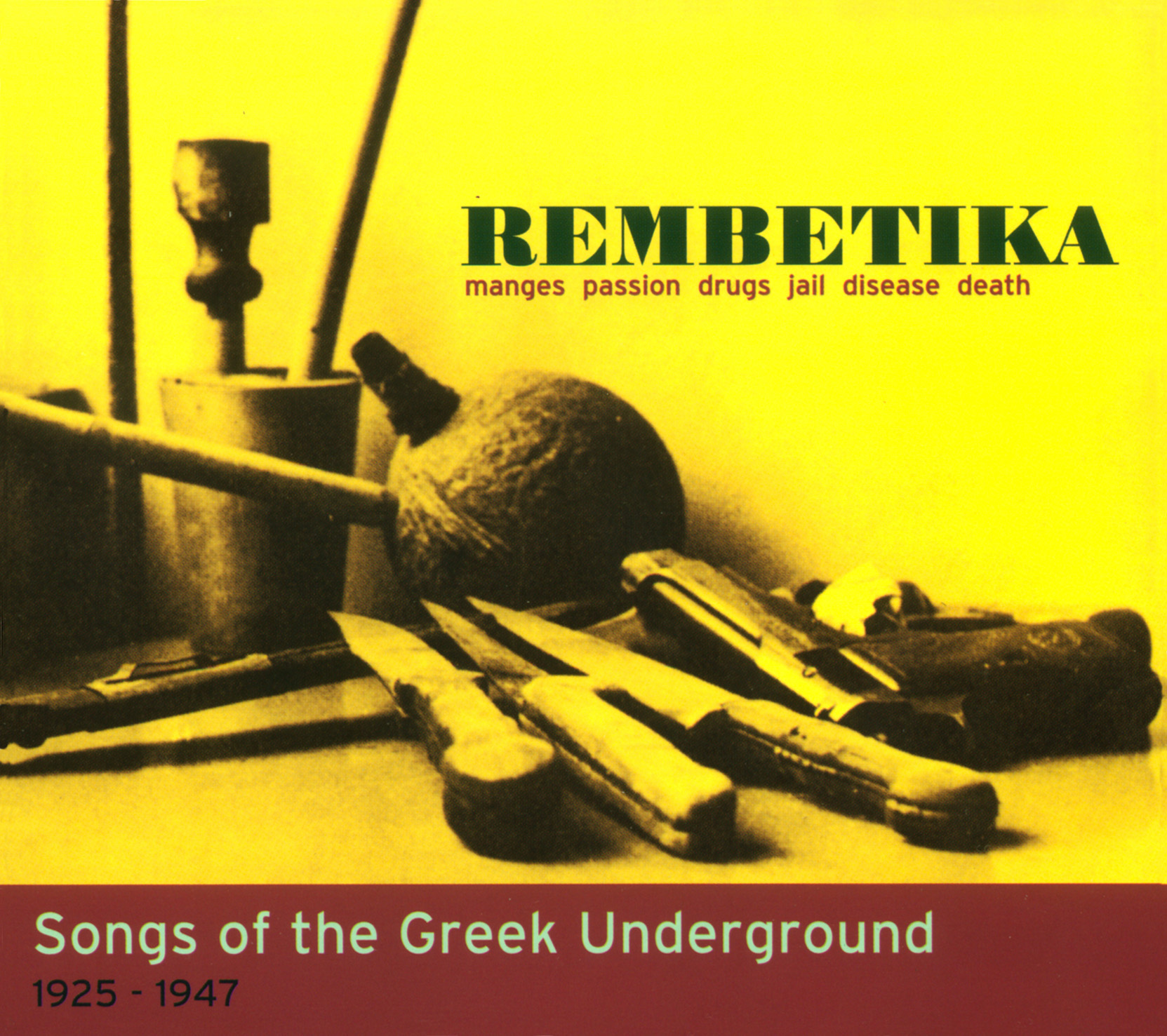Flamenco, fado and tango are firm fixtures on the world music jukebox, but their close cultural equivalent, Greek rembetika, is overdue on the playlist. In Greece itself, roots artists and audiences are rediscovering the tradition in a big way, and a new generation of singers and instrumentalists is emerging to take the music forward. The rest of the world is sure to pick up on the unruly magic sooner or later.
Rembetika began on the margins of society—specifically in illegal but more or less tolerated hashish cafes—in the ports of Piraeus and Thessaloniki in the mid 1920s, as migrants, seamen and traders from the east (in particular from Turkey and Lebanon) brought their customs with them. It was made by and for the manges, men and women who scorned straight society and its laws and conventions. A manga never wore a collar or tie, hated the police, smoked dope constantly, and avoided legitimate work whenever possible. Way to go.
Like its Latin cousins, rembetika is the blues in another form: music for the oppressed, the outlaw and the bohemian. It’s visceral, rough-edged, percussive, and rhythmically off-kilter; it possesses great melodic variety and charm, and amidst all the passion and pain, it’s capable of tenderness too. On the wonderfully atmospheric, time-travelling double CD Rembetika: Songs Of The Greek Underground 1925-1947—subtitled, just so there’s no misunderstanding, Manges, Passion, Drugs, Jail, Disease, Death—it’s sung by often untutored voices, who make up in feeling and depth of experience for what they lack in technique and polish. Accompanying instruments are mostly the bouzouki, the lauto and the tsuras, double string lutes of different sizes and sonorities, and the sanduri, a close relation of the north Indian santoor.
The first CD is devoted to the chief recreational pursuits of the manges, which were drugs, music and drugs. The overwhelming majority of the lyrics concern hashish (check the track titles for flavour). The remainder deal with heroin and cocaine, which were by the early 1930s making their unwelcome presence felt. The second CD is a relentless cold reality call, its songs portraying the downsides of manga life: prison, petty criminality and early death.
By the late 1930s, the manges and their culture were being harassed and driven further underground by the dictator Metaxas, and rembetika went almost completely off radar until its recent rediscovery. Time to raise a glass, or whatever, to its turbulent rebirth. – Chris May
